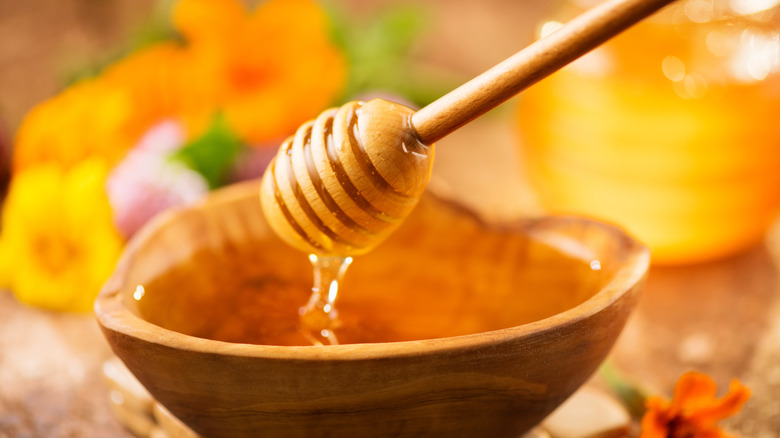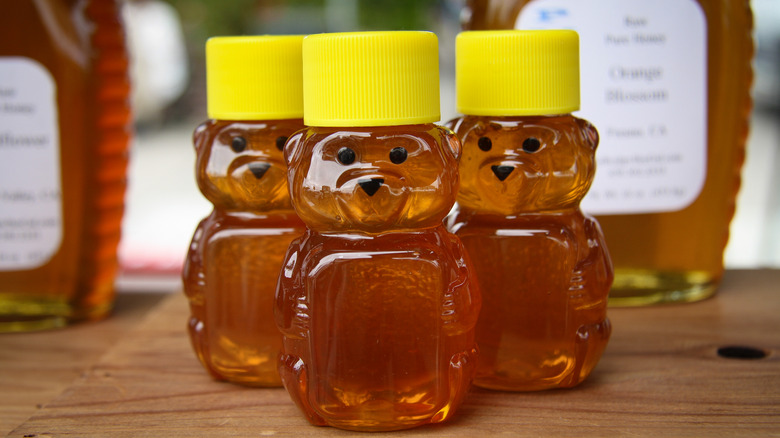What Happens If You Refrigerate Honey?
Oh, brother. Someone left the honey in the refrigerator.
Whether you're spreading it on toast, dipping fruit in it, or mixing it into tea, honey is a sweet treat that we can all agree is best served as the sticky, golden liquid favored by bees and cartoon bears worldwide. We can also agree that when it comes to honey, a little goes a long way, so what should you do to keep the bear or beehive-shaped bottle from going bad once you've used what you need? The answer is not "put it in the fridge."
While we may be used to sticking our open jams, jellies, and dressings in the refrigerator to keep them fresh and ready to use after their initial opening, the same does not hold true for honey, which according to Beehive Hero, should be kept in a cool, but not cold, place out of direct sunlight in a tightly sealed container, like the ones it's sold in.
According to New Zealand-based honey company Manuka Corner, honey has an almost indefinite shelf-life, even without any added preservatives, because of its high concentration of natural sugars. Honey is also very acidic, so it is naturally antibacterial, essentially making the refrigeration needed for other condiments unnecessary.
If you think about it, this makes sense, as honey is made and stored naturally by bees in their hives. And as resourceful and hardworking as these little bugs are, they haven't exactly figured out indoor refrigeration.
The problem with cold honey
So what happens if you stick your honey in the fridge? Thankfully, no permanent damage, but it will make it significantly less pleasant to work with. MyRecipes notes that putting honey in the fridge will cause it to crystallize faster and take on the consistency of a thick, dough-like sludge, which, of course, is not exactly what anyone wants to drizzle over their toast.
If you make this mistake, it's not the end of your honey jar. Manuka Corner explains that you can, and should, warm it back up by submerging the jar in hot water to restore it to its ideal, syrupy consistency. However, this should not be done regularly since the one thing that can damage your honey is exposure to temperatures over 95 degrees Fahrenheit. This heat can alter its taste and diminish its nutritional value, especially if repeatedly or regularly exposed.
This same method of low-heat warming can be used if your unrefrigerated honey has been sitting around for a while and starts to crystallize. The Spruce Eats notes that discoloration or slight crystallization is natural over time because of the pollen content in honey, but it does not mean it has gone bad. It may just need to be refreshed a little bit before you can enjoy it to its fullest.

